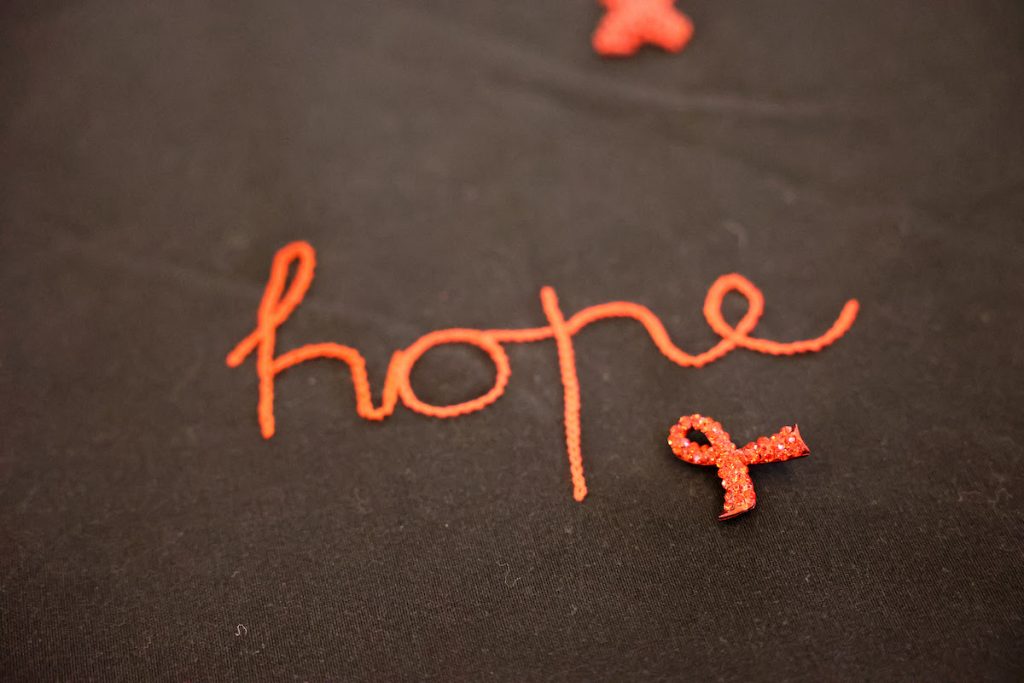
On 1 December 2022, Gathering for a World AIDS Day prayer in the Ecumenicla Center in Geneva, the World Council of Churches (WCC) reflected on the latest UNAIDS report, and prayed that churches will renew their commitment to become agents of life for those suffering from HIV and AIDS.
| WCC-A panel discussion during the International AIDS Society Conference on HIV Science in Brisbane, Australia, explored “Leadership, communication, and science: A three-dimensional pandemic response?” The panel was part of the closing ceremony held 26 July. |
Gracia Violeta Ross, programme executive for the World Council of Churches (WCC) Ecumenical HIV and AIDS Initiatives and Advocacy programme, served as a panelist, participating in a dialogue designed to explore the importance and intersection of leadership, communication, and science-based decision making in tackling pandemics.
Ross stressed the centrality of human rights for public health measures. “Let us remember that there were gross violations of human rights during COVID-19 outbreaks, including the basic right to health in emergencies,” she said. “The COVID responses were drastic measures that resembled a military strategy more than a public health measure.”
She also emphasized the role of the community in health. “The HIV epidemic demonstrated that we could not do anything without the affected communities,” she said. “The communities are much more than a walking virus; we have abilities, wisdom, capacities, and experience.”
Ross witnessed how the communities of people living with HIV responded during COVID-19. “We took the medications to the houses of people,” she said. “We collected food baskets and advocated for no discrimination against people with COVID-19.”
Ross also urged people to continue to fight against the barriers created by intellectual property. “One of the main lessons of the HIV response is that we cannot let the patents come before people, which has huge limitations for access, making health a commodity to buy for those who can pay,” she said. “The international community of people living with HIV fought against intellectual property barriers and won more access for people with HIV.”
Sadly, in COVID-19, we saw again the unfair manoeuvres of the big pharmaceutical industry, Ross said. “Vaccines were given to the highest pay; some countries had to beg to be able to buy some vaccines,” she noted. “Diagnostic tools and medications were not accessible—this is outrageous.”
She concluded by pointing out that HIV is still prevalent in today’s world—and hitting the most vulnerable communities hardest. “That is why we need to maintain the political commitment to HIV—unlike COVID-19, HIV is not seasonal, it is linked to social and economic inequalities, it feeds with gender-based violence and marginalization,” she said. “Therefore, it is unlikely that HIV will be eradicated.”
She urged strengthening Initiatives such as PEPFAR, the Global Fund, and programmes like UNAIDS. “In my roles in the World Council of Churches, I am happy to work with these initiatives and with the faith communities. The response of the governments has to be adjusted to scientific developments,” she said. “When we think about it, there should be no more fear of transmission and stigma against people with HIV because HIV is not passed like COVID,” she said. “With the medications nowadays, we know that a person who takes the treatment and has an undetectable viral load, can no longer transmit HIV.”
It is critical to put people and communities at the centre of any health response or program, Ross said. “The right to health enables us to exercise other rights,” she said.
